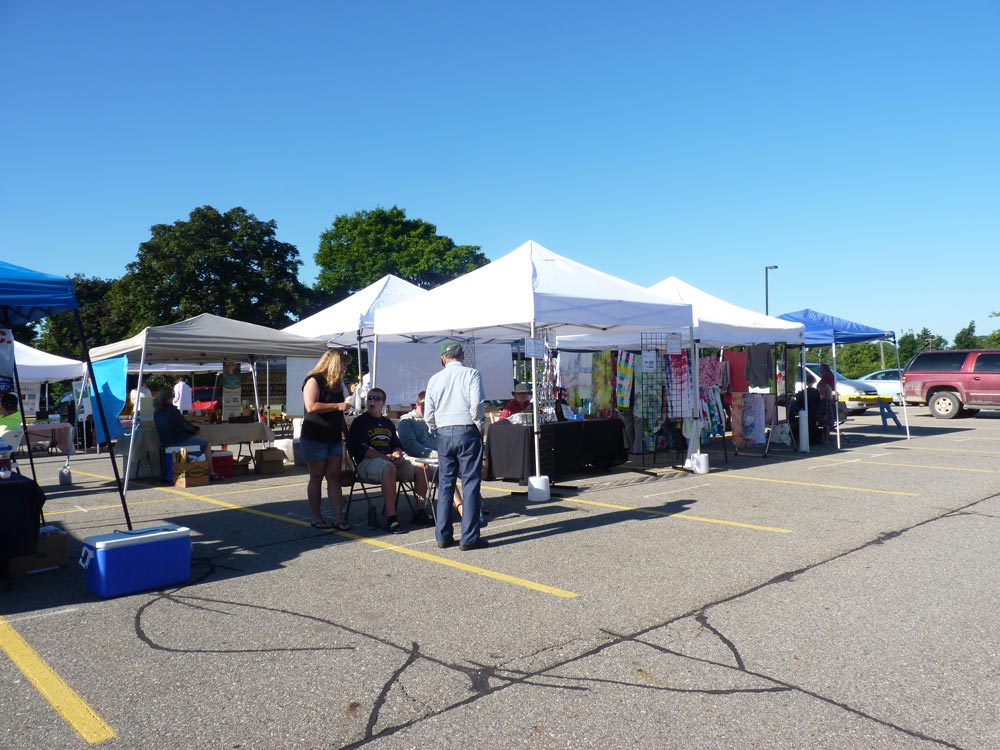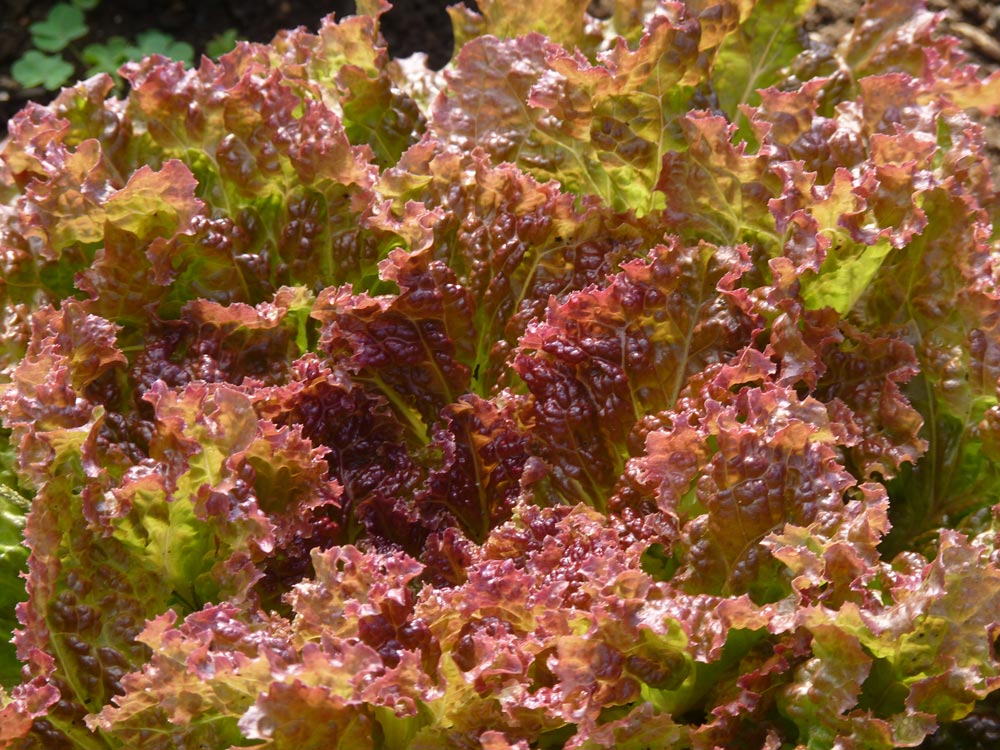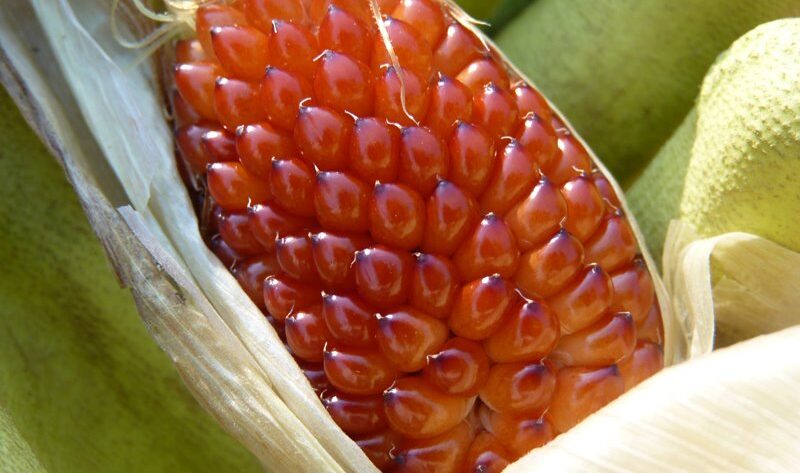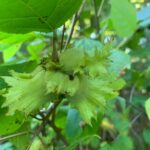A trip to the local farmer’s market has become one of my very favorite activities. Here you can sample a variety of locally-produced, high-quality goods, meet interesting people, and come home with bags and bags of fresh veggies, meat, eggs, and more. But, not all farms are created equal, and its really important to have a critical awareness of who is selling what–and when–at a farmer’s market. This post is meant as an introduction to how to support the *right* vendors at the farmer’s market and avoid people selling industrialized food who are masquerading as farmers.
I write this blog post based on my regular attendance at over a dozen farmer’s markets in three states as well as my experience in vending at our local area farmer’s market for the last two seasons, where I happened to get stuck next to what I eventually realized was a “Fraudulent Farmer” most weeks at the market (so I was able to covertly observe his shady activities). Its also based on conversations I’ve had with several friends who are local certified organic and naturally grown farmers and my own various experiences in homesteading over the last six years.

Going in with the right expectations
A farmer’s market focuses on locally grown and handmade products–fruits, vegetables, cheeses, breads, various prepared foods, meats, eggs, handcrafted goods (like jams), honey, local art, and much more. Even small towns can boast impressive farmer’s markets, with a wide variety of produce and locally made goods. A farmer’s market promises a different experience from the grocery store–everything there should be produced or grown locally, which means that your local farmer’s market is the antithesis to the grocery store. It also means that the face of the farmer’s market changes as the season progresses.
Beware of Fraudulent Farmers
The biggest thing to watch out for at farmer’s markets is what I call “Fraudulent Farmers” — practically every farmer’s market I’ve been at has them, although some markets have them more than others (I have found them to be much more prevalent in larger city markets, like Detroit’s Eastern Market or Flint’s Farmer’s Market than in small markets, but even my local market has one–who I will describe below). Purchasing from a fraudulent farmer is no different than purchasing from the grocery store–this is because Fraudulent farmers aren’t farmers at all, they are distributors. Better fraudulent farmers at least go to local farms and buy their stuff, serving as a middle man. The worst of the bunch go to larger distributors (like Gordon Foods) or port areas where stuff is brought in (like Detroit’s Eastern Market) and buy produce wholesale. Then they go to your nearby farmer’s market, set themselves up a booth, and sell with everyone else. You end up getting one thing (industrialized, GMO, pesticide-laden food) when you are expecting another (fresh, local, chemical-free food).
How can you tell if a farmer is a fraudulent farmer? Let’s start with a story, which will illustrate many of the tell-tale signs you can look out for. “Farmer Fred” (this is also the name of his booth, name changed for the purposes of this post) is a farmer who regularly vends at my local farmer’s market. When I first started going there and didn’t know about fraudulent farmers, I often bought things from him because he had beautiful-looking fruit and vegetables, a very wide selection, and fantastic prices. In fact, Farmer Fred routinely undersold everyone else at the market. If the going rate for nice, plump red pepper was $1.00, Farmer Fred would be selling them for 75 cents. He also never made claims about the organic nature of his vegetables but he did list things like “Farm Fresh Vegetables” (which is really kind of meaningless). When I started asking Farmer Fred questions about his produce, I got really vague answers. I asked, “Do you grow your own vegetables?” and he would say, “No, my family does.” I responded, “Where is their farm?” His response, “Up north.” I said, “What’s the name of their farm?” He responded, “They don’t have a name. Do you want to buy something?” Then, when I started looking at his vegetables–what was he doing with cantaloupes, tomatoes, and watermelons in early June in Michigan? These plants are seedlings in the ground then–not even more than a few inches high. And I noticed something else–he was opening boxes that had been sealed, full of vegetables. I started asking around, and sure enough, among the other vendors, Farmer Fred had quite the reputation.

One of my dear friends who also vends at this market had been a farmer for thirty years. She was a one-woman operation–certified organic, all biointensive farming methods. Her vegetables were beautiful. She grew her plants with love and care–but could never charge so cheap a price as Farmer Fred. In fact, in the five years that she had been selling her produce seriously at this market, she had yet to turn a profit. But, she loved what she was doing, she loved educating others, and so she kept on doing it. But here was Fraudulent Farmer Fred, underselling her at every step…and he wasn’t even a farmer at all.
Spotting Fraudulent Farmers
So, what do we learn from this tale? Don’t give one’s business to Fraudulent Farmer Fred’s…give it to real, hardworking farmers. You can spot fraudulent farmers with observation and tact:
1) Out of season veggies and fruits. You want to learn what fruits and veggies should be in season and buy from people who clearly are offering veggies in season. Note that if a farmer has a hoop house or poly tunnel, he or she may be a full month or more ahead of the growing season (this shelters the plants from extreme temperatures, so I’m taking that into account in my list below). In my bioregion (Zone 6 Michigan), here’s what you can expect at the different points in the year.
- Year round (with a hoop house or cold storage): spinach, lettuce, arugula, minzua, kale, various other leafy greens, carrots, celery, kohlrabi, cabbage, potatoes, apples, onions, winter squash, microgreens, garlic, sprouts.
- Spring and early summer crops: primarily leafy greens and peas, chives, some wild edibles.
- Mid summer: garlic, garlic scapes, herbs, green onions, strawberries, some early berry varieties
- Late Summer (July – August): corn, tomatoes, peppers, eggplant, watermelon, cantaloupe, raspberries, blackberries, plums, pears
- Fall (October – November): Greens, cabbage, onions potatoes, carrots, pumpkins, squashes, apples
2) Out of region veggies and fruits: Under no circumstances can people grow bananas, oranges, lemons, limes, pineapples, coconuts, papayas, and so on in my bioregion. The only citrus that can be grown outside here is hardy kiwi and paw paw (that I am aware of); hardly anyone grows hardy kiwi, and paw paw I’ve only seen at the market twice because it goes bad very quickly. If you see bananas or oranges, you know they are outsourcing their veggies.
3) Boxes that appear like wholesale boxes, especially if they are sealed. Note that some real farmers buy such boxes for moving produce, so this in and of itself shouldn’t be the only sign. Its a good idea to sneak around the back of their booth and see how they are unpacking their veg. A lot of the farmers at our market use plastic coolers, plastic tubs, or wooden boxes that are reusable for many seasons.
4) Veggies that have stickers on them (or that Farmer Fred tries to skillfully remove). Yeah, that’s not from a real farmer.
5) Prices that don’t reflect the real cost of locally farmed food. This is the fraudulent farmers underselling all other farmers at the market–if it’s cheaper than everyone else, it’s probably too good to be true.
6) Lack of other farm goods. Many farmers make ends meet by selling additional farm products: wool or yarn, homemade jams, baked goods, infused vinegar, honey, beeswax candles, salves and creams, and even smudge sticks! A fraudulent farmer has no farm, so wouldn’t take the time to handcraft other goods (but certainly could buy and sell stuff from national companies that offer these kinds of products). Not all farmers do this, but a lot do!
7) No dirt on the veggies. Veggies straight from the field often take a bit of the field with them (especially squash, cukes, potatoes, carrots). Some farmers will wash their veggies (although a lot will not due to the extra work involved). If there is not a lick of dirt on the veggies, it might be a sign that you have a fraudulent farmer!

8) No dirt under Farmer Fred’s fingernails, no calluses on his hands. This is pretty self explanatory–if you aren’t farming, you aren’t going to have dirty hands and calluses. Try shaking the Fraudulent Farmer’s hand and see what happens.
8) When questioned, give vague answers about their produce or where it comes from. “Area farms” “The Mennonites” or “My family” are all kinda abstract.
Speaking of questions….What’s really fun to do with Fraudulent Farmers is to ask them really specific questions about farming that a farmer would innately know, but that a Farmer Fred would not. Here are a few of my favorites:
- “What’s your soil PH like on your farm?” (every area has a unique soil profile, and if the farmer doesn’t know that, he or she has no business growing veggies. So this can give you a VERY good indication as to whether or not they are fraudulent. My own Farmer Fred failed this question miserably when asked, telling me he had “perfect soil with a perfect PH” when he got to his farm, even though everyone else’s soil around here is Alkali. BUSTED!).
- “Who do you source your seeds from?” (Good farmers will have favorite seed sources, especially GMO free ones like Victory Seeds, Seed Saver’s Exchange, or Baker Creek).
- “What varieties are you growing this year? Which are working out the best?” (Good farmers know what they are growing and how its doing).
- “Wow, these watermelons are really early for Michigan. How did you grow them?” (Really, even with a hoop house, you can’t have a ripe watermelon in May or June).
- “How did you get your cabbages to get so uniform?” (Uniformity can be a result of chemical sprays and GMO crops; but some farmers are better than others at achieving uniformity, and they know its an expectation from consumers, so this question may lead to mixed results).
- What’s your favorite thing to grow? (Fraudulent farmers will give some lame response to this question!)
Ask away and watch them squirm.

Getting to Know Your Real Farmers
Most real farmers love what they do and are excited and eager to talk about their farm, their growing processes, and so on. Its a great idea to develop close relationships with a few of your farmers at the market, especially if you want to do some canning and bulk buying or off-season buying. Its also nice to get to know your farmers so you know who you can trust and avoid the fraudulent farmers.
When getting to know your farmer, here are some good questions to ask:
- What are your growing practices? (e.g. do you use chemicals?)
- Where are you located?
- How long have you been farming?
- Are you certified organic or certified naturally grown?
- How large is your farm?
- Do you offer produce in the off-season? (Some offer local pickup services)
- What’s your favorite thing to grow?
These kinds of questions provide really helpful insight into your farmers. It bears mentioning that some farmers may do more than one market at a time, and may hire people to sell their vegetables at other markets. This isn’t necessarily cause for immediate concern, but it is really nice to talk to the person themselves who grew the vegetables.
Certified Organic, Naturally Grown, and Chemical Free
The certifications that farmers can get also bear some mention here. Getting “certified organic” is a legal designation that ensures only that crops are grown without pesticides or chemicals (they can still be grown on an industrialized scale). Certified Organic is really a certification that benefits large growers, not small family farms, and the USDA designed it so. This is because it requires what I feel is ludicrous amounts of record-keeping (literally down to what tools were used in what field on what day and every input to the farm). It also costs about $1500 or more per year. It takes a typical farmer 2-3 months do to the initial preparation for certification and immaculate record-keeping in the years that follow. Because of this, and given the already tiny profit margin on most small family farms, you won’t find a ton of farmers at the market with organic certification. A few of my farmer friends who have had this certification in the past are instead opting

Some farmers may opt for another certification called “Naturally grown.” This is a much more reasonable option for small family farmers–its a peer-review system where farmers who are Certified Naturally Grown visit other farmers and ensure their practices meet the standards. Naturally grown uses the same practices as organic, but without the price tag (in other words, no chemicals, no sprays, etc.) It also doesn’t require extensive paperwork or intensive record-keeping or financial burden. Either Certified Organic or Certified Naturally grown are excellent indications that your farmer is engaging in good farming practices.
The final thing that can happen, which is the case with a lot of new farms, is that they may opt for no certification and say they are “chemical-free” or “no sprays or pesticides” and you have to take their word for it. If they seem trustworthy and passionate about what they are doing, that’s really not an issue. And you can use the other methods in this guide (like understanding what is in season when) to visually evaluate their produce. Apples and fruits are something to watch out for–a lot of organic integrated pest management systems are harder with orcharding, so I would be especially careful about apples and fruit.
The Look and Feel of the Booth
Another thing I pay attention to evaluate a potential farmer is the name of the farm and how the booth looks and feels. The name of the farm can sometimes give you great insights into the mind of the farmer. “Peace Farms” for example gives a much different vibe (sounds like a farming collective or intentional community) than “Jackson Farm” (which sounds like a family farm). Its also nice to take a look at the care and creativity put into a farmer’s market booth. Is it clean? Do they display their veggies with pride?
Appreciate Your Farmer!
I’ll conclude by mentioning that these farmers are growing your food–the food you put in your body for sustenance and survival–and they are doing it with the love and affection that only a small family farmer can. So thank them for their hard work, respect their efforts, and be grateful to them that you aren’t stuck shopping at the grocery store for produce that comes from who knows where and has who knows what chemicals sprayed on it. They are regenerating the landscape as they grow, providing ecosystems and habitats, and growing food in a system that has the decks stacked in the opposite direction. Small family farming is a thankless job and a difficult one to make ends meet due to the unreasonably low cost of industrialized agriculture–so let’s show them some love!





Reblogged this on The TOSSer By Temple Of The Standing Stones.
Really enjoyed reading this article. There is so much truth to what you said that it hits home with many small farmers! Thank you so much for writing this.
Thank YOU for being such a dedicated “real” farmer, Linda! 🙂
Wait… what? Certified organic can grow GMO crops? Yikes! I’m going to ask a friend of mine who is an organic farm inspector. That’s certainly not what I would expect.
No, only on an industrialized scale. I double checked it with my farmer!
This is super helpful and informative! I know in my hometown’s farmer’s market, there was a farmer who didn’t use natural or organic methods at all, and she was paid by Monsanto to wear a shirt with their logo on it. Even though I feel like that runs completely counter to the spirit of a farmer’s market, I guess I should at least appreciate that she was honest! It’s too sad that some people have nothing better to do than lie about things like this. Unbelievable, really.
I will certainly be asking your suggested questions in the future.
I thin this is a very informative and well written article…
Thank you, Dad! Thanks for reading 🙂
Wow. You know your stuff. Your blog is a really valuable resource. Thanks for sharing. Warmest wishes!
Thanks for the comment, Leeby!
You’re welcome!
Thank U so much Willow for this info. I am new to the whole farmers market experience and am so glad that now I can tell the difference between who i need to be supporting and who I need to shun. This has been so helpful to me.